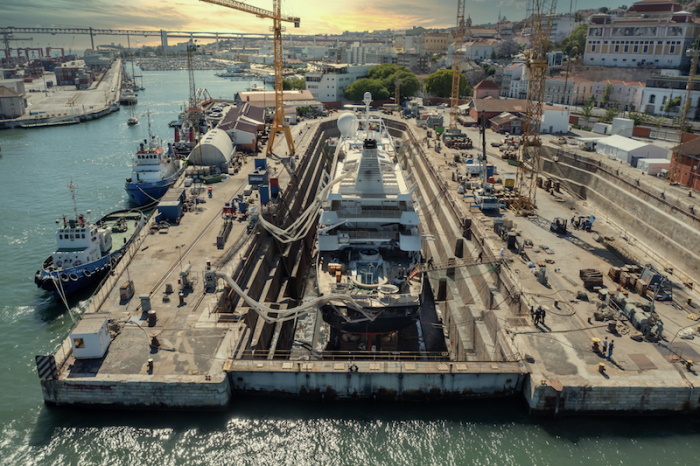The shipbuilding industry is on the brink of an unprecedented boom, driven by increased orders for Liquefied Natural Gas (LNG) ships and the need to replace aging vessels.
However, this surge in demand is being overshadowed by escalating labor-management conflicts, with unions pushing for wage increases and better working conditions. The Clarkson Newbuilding Price Index, which tracks ship prices, reached 187.2 in June, nearing the all-time high of 191.6, indicating a robust market. As of the first quarter of this year, the order backlogs for HD Hyundai Group’s shipbuilding affiliates and Hanwha Ocean amount to 77 trillion won (approximately $57 billion) and 27 trillion won, respectively.
The growing labor-management conflict stems from differing perspectives on the shipbuilding boom. Unions see this year, when all major shipyards are expected to post profits, as the right time to raise wages that have been suppressed for over a decade. On the other hand, management argues that it will take 1-2 years for the current orders to reflect in revenue, making significant wage increases difficult.
In addition to wage increases, each company’s unique issues also make it hard to narrow differences. The HD Hyundai Heavy Industries Union is demanding the right to refuse promotions to prevent a decrease in union membership, but management finds this unacceptable. The Hanwha Ocean Union is demanding a promise not to split off the promising future industry of special ships, but management has reportedly responded, “There are no plans under consideration regarding this.”
The Hanwha Ocean Union (formerly Daewoo Shipbuilding) went on strike at the Geoje plant to urge a resolution on July 15. A representative from the Hanwha Ocean Union stated, “Even during the negotiations held the day after the strike (16th), the company did not present a basic pay proposal,” hinting at further actions.
On July 17, the Korea Metal Workers’ Union Shipbuilding Division (KMWU Shipbuilding Division), which includes major shipbuilding unions, announced a decision for joint action. The first general strike is scheduled for August 18. A representative from the KMWU Shipbuilding Division stated, “Despite the ongoing boom since last year, no company has submitted a proposal, making joint action necessary.”
Wage negotiations between labor and management at various companies are also facing difficulties. The HD Hyundai Heavy Industries Union plans to conduct a strike vote from July 22 to 24. Despite 14 rounds of negotiations over basic pay, retirement age extension, and changes to performance-based pay calculation standards, no progress has been made, prompting the union to seek strike authorization.
While the higher proportion of in-house subcontracting at shipyards has reduced the impact of strikes compared to the past, the current backlog of work changes the situation. Park Jong-sik, a research fellow at the Korea Labor Institute, stated, “Recently, the shipbuilding industry has been experiencing slight production delays due to difficulties in securing skilled workers. If strikes are added to this, the issue of production delays could become more serious.”
The shipbuilding industry, known for its cyclical nature, is currently experiencing a boom driven by global trends such as the increased demand for LNG and the need to replace aging vessels. However, the labor-management conflicts threaten to disrupt this positive trajectory. The unions’ perspective that wages have been suppressed for over a decade is rooted in historical economic conditions and labor policies, making their demands more pressing.
Source: Business Korea





